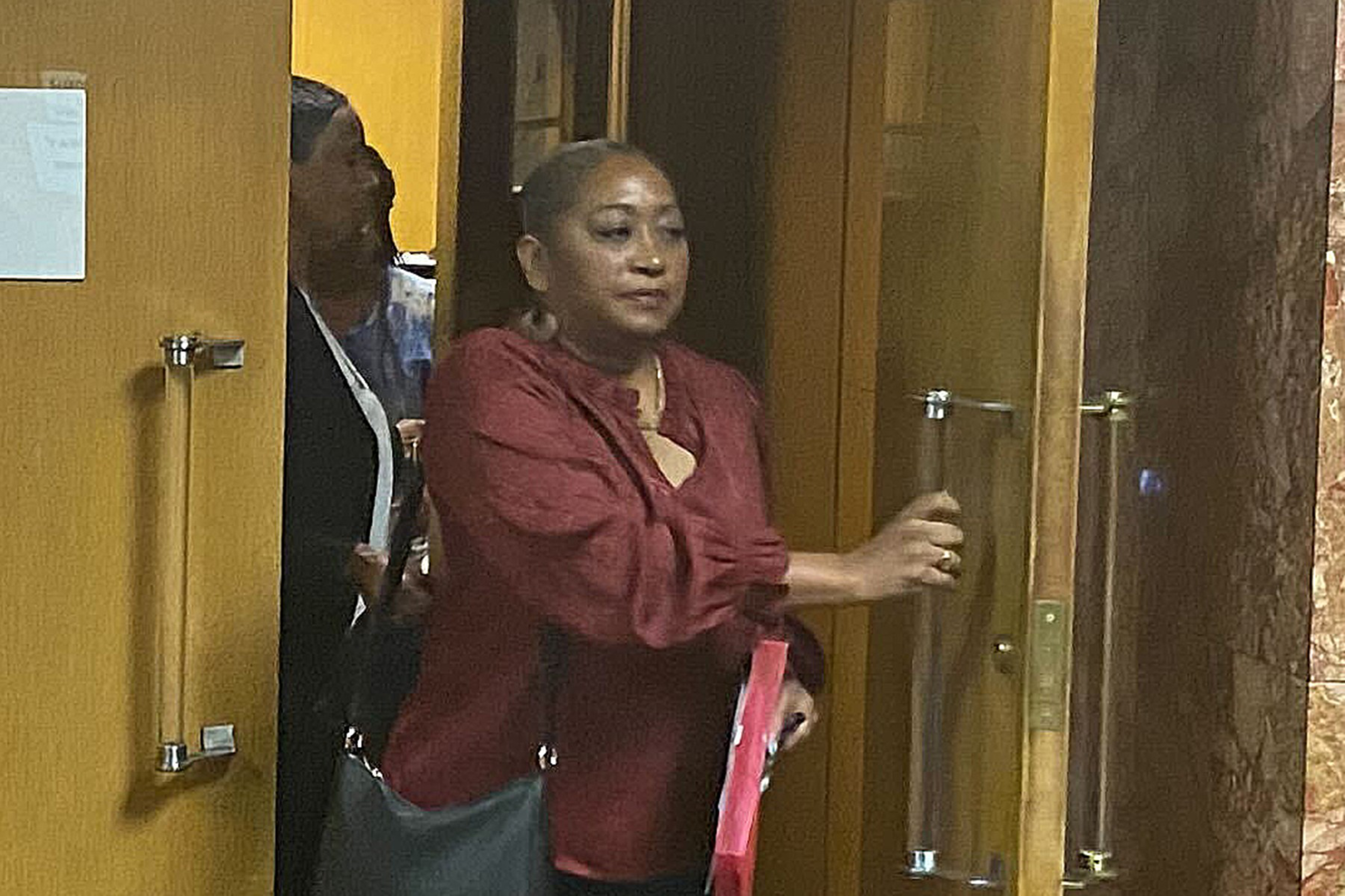A former San Francisco official is accused of a complicated scheme involving bribery to obtain public contracts from a San Francisco official he once dated. That official, in turn, used family and friends as go-betweens to hide the source of kickbacks, according to court documents.
The yearslong scheme was detailed in court documents made public this week after Lanita Henriquez, the director of San Francisco’s Community Challenge Grant Program (opens in new tab), and Rudolph Dwayne Jones, who is the businessman alleged to have paid bribes, were both charged with multiple felonies by San Francisco District Attorney Brooke Jenkins.
Henriquez pleaded not guilty Thursday, and Jones is expected to enter a plea Friday.
Officials said that Henriquez, as the head of a program that issues grants to pay for neighborhood improvement projects, was uniquely positioned to send contracts to Jones, who illegally paid her for special treatment.
“The issue here is not whether or not the projects get completed; it’s whether or not he should have received the contracts in the first place and how he received them,” Jenkins said at a press conference Thursday.
The case is the latest episode in an ongoing corruption saga marring the reputation of San Francisco government. Many officials in recent years have been prosecuted for their parts in separate plots for ill-gotten gains. Mohammed Nuru, the former head of the Department of Public Works, was sentenced to seven years in 2022 for wire fraud.
READ MORE: San Francisco Corruption: Ex-Parole Agent Pleads Guilty in Bribery Case
Former District Attorney Chesa Boudin, who was recalled last year, opened the investigation into Jones and Henriquez in October 2021 after Jon Golinger, the case investigator, read a news report characterizing Jones’ work as a consultant with the San Francisco Public Utilities Commission as questionable.
Jenkins would not say if additional charges are expected in the case.

The Scheme
The alleged scheme was simple enough: Pay Henriquez bribes to get city contracts. Jones was awarded roughly $1.4 million in contracts by Henriquez between 2016 and 2020, according to court documents.
Jones paid Henriquez, her family and friends nearly $200,000, prosecutors said. She, in turn, gave him insider information as the sole person tasked with issuing grants and making sure those monies were spent fairly, the investigation found.
The plot began with Jones’ control of two companies and a nonprofit, according to court records. The companies did the work and the nonprofit acted as a fiscal sponsor for the companies, a requirement of the program. That nonprofit, the Southeast Consortium for Equitable Partnerships, has a board made up of Jones’ wife, sister, two employees and someone he paid $25,000, according to court documents.
Jones’ work spread across the city. He had contracts with seven city departments and the nonprofit A. Philip Randolph Institute, which served as a fiscal sponsor for a number of projects he was awarded by Henriquez.
The projects included everything from purchasing emergency preparedness supplies for the Miraloma Park Improvement Club to assisting with a project at a garden at Denman Middle School.
Although some of the contracts required competitive bidding, Henriquez tipped the scales to benefit Jones, court documents said.
In a May 2020 email exchange presented by prosecutors, Henriquez sent Jones insider information about an upcoming grant contract.
“Here is a copy of the informal solicitation,” Henriquez wrote. “Didn’t send last week because we made edits. Just finalized but the 2-week window agreed upon.”
Jones’ company, RDJ Enterprises, was eventually awarded the contract, according to documents.
Three of Henriquez’s family members and several people she knew received checks from Jones, took a cut and then paid Henriquez, the documents said.
Henriquez explained her part in the scheme in a text message to a person she knew, court documents show.
“When you cash the check, you keep $400,” Henriquez wrote. “I’ll give you $4000 out of the money. So you’ll get 4400 a check…We’ll get one every month for the next 10 mons.”
One unnamed recipient, described as a family member of Henriquez, was paid $77,080 by RDJ Enterprises, documents said.
Meanwhile, fake invoices, which had to be approved by Henriquez, were provided by RDJ Enterprises purporting to be for payments to outreach workers on a project in one instance and for plant installation on an Excelsior Community Hub Garden.
Those workers were, in fact, Henriquez’s friends and family, according to documents, which indicated none ever worked for Jones.
In 2020, the final year of their alleged scheme, Jones started issuing gift cards instead of direct payments. That same year, Nuru was arrested and his federal case began (opens in new tab).
Whether officials in the City Administrator’s Office were aware of the alleged scheme remains unclear. One longtime senior employee told investigators that “they had concerns that the invoices from Jones’s company RDJ Enterprises were ‘wasteful’ but they were not aware of any illegal activity.”
Still, that same official said they were told that Henriquez and Jones had dated, which was “part of my concern for Dwayne.”
Correction: This article has been updated to give the correct spelling of Jon Golinger’s name.
